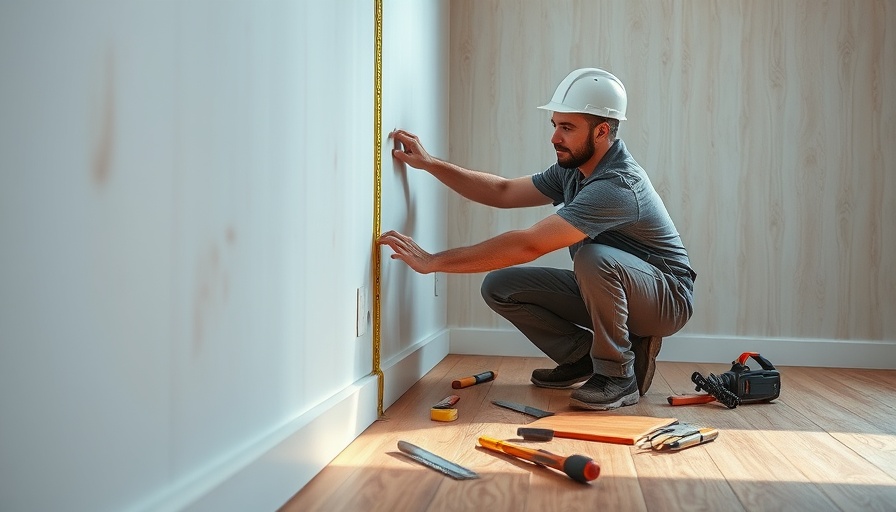
Understanding Unpermitted Work: A Closer Look
When homeowners take on DIY projects, they often do so with pride, willing to invest sweat equity to make their homes more livable. However, there’s a fine line between enhancing a property and running afoul of local regulations. Unpermitted work refers to renovations or modifications made without the necessary approvals, which can create complications when it's time to sell. This includes everything from minor home improvements like deck extensions to significant changes like converting a garage into an extra bedroom.
Your Rights When Selling a House with Unpermitted Work
The good news is, you can sell your property even if it includes unpermitted work. There are no strict laws prohibiting the sale of homes with unpermitted modifications. That said, the process involves careful navigation of various legal and financial implications. For example, sellers are legally obligated to disclose known unpermitted work to potential buyers. Failure to do so can lead to liability issues later on.
The Risks of Unpermitted Work: What to Consider
Selling a home with unpermitted work often generates red flags, especially for prospective buyers relying on mortgages. Lenders may hesitate to finance a home that poses potential risks connected to unpermitted additions. Furthermore, unpermitted areas might not contribute value during the appraisal process, negatively impacting your sale price. This is key; while you might have added enhanced living space, if a basement unit isn’t officially documented, it’s essentially weightless in financial terms.
Documenting Your Situation: Essential Steps
Before listing your home, it’s critical to assess the unpermitted work. This involves contacting your local building department to pull records. If permits weren’t pulled for significant renovations, you may face challenges in school during negotiations. Hiring a licensed contractor for an assessment can also shed light on whether the modifications comply with existing codes. This preventative measure not only arms you with documentation for potential buyers but can also help you identify any necessary updates.
Insurance Implications: A Hidden Challenge
If disaster strikes in an unpermitted area of your home, insurance risks loom large. Typical homeowners’ insurance may not cover incidents arising from unpermitted work. If, for instance, electrical issues in an unpermitted attic office cause a fire, you could find yourself financially liable for damages that would otherwise be covered. Insurance providers are likely to look closely at the legality of work performed within your property during claims processes, so ensuring compliance beforehand can save stress and significant financial fallout.
Tips for Selling Homes with Unpermitted Work
As you navigate selling your house with unpermitted projects, transparency and adjustments can ease potential hurdles. Here are a few tips:
- Be upfront: Disclose all unpermitted work in your listing and during negotiations. Transparency fosters trust.
- Make repairs: If financially viable, consider applying for retroactive permits or bringing the work up to code to mitigate buyer concerns.
- Consult real estate professionals: A seasoned realtor familiar with local laws can guide you in presenting your home effectively, addressing unpermitted work strategically.
When to Seek Legal and Real Estate Guidance
The intricacies of selling a home with unpermitted work might also warrant consulting a real estate attorney, especially if significant issues arise during negotiations. They can provide insights on potential liabilities and help craft a strategy that minimizes risk while maximizing your investment return.
Looking Ahead: The Future of Real Estate Sales
As the real estate market evolves, awareness of unpermitted work's implications will likely rise. More buyers will seek clarity on properties before purchasing, making it essential for sellers to adapt their approaches accordingly. By addressing unpermitted work head-on, homeowners can ensure smoother transactions and foster buyer confidence.
Final Thoughts on Selling with Unpermitted Work
While selling a house with unpermitted work introduces certain risks and challenges, understanding your obligations and preparing accordingly can lead to successful transactions. By doing thorough documentation, consulting with professionals, and maintaining transparency, sellers can mitigate issues and provide potential buyers the information they need to move forward. Don’t let unpermitted projects hold you back from capitalizing on your property’s true value!
 Add Row
Add Row  Add
Add 



Write A Comment